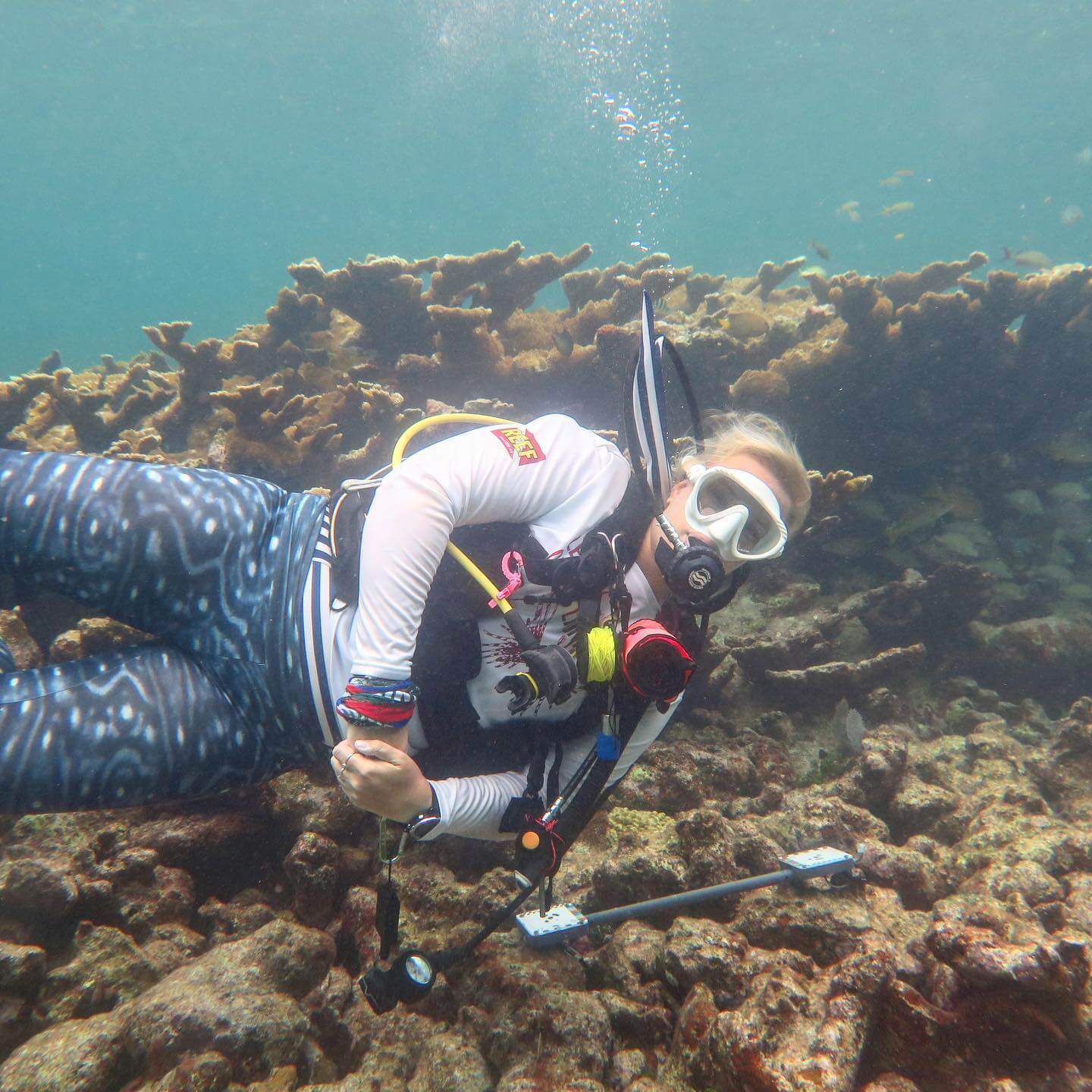This summer, the coral reefs in the Florida Keys are in danger from rising temperatures due to climate change.
Faced with an extended period of water temperatures much higher than normal, the coral is bleaching, shedding the algae which gives the plants up to 95% of their food, and becoming skeletons, said Katey Lesneski, Research and Monitoring Coordinator for Mission: Iconic Reefs, at the Florida Keys National Marine Sanctuary and 2007 graduate of Concord-Carlisle High School.
For the past few weeks, Lesneski has been diving in the Keys on a mission to save the tiny animals fastened to the ocean floor. She is part of a team that takes bits of coral from hot, shallow water to a cooler, deeper spot in hopes that multiple species will survive.
Usually, the reefs at this time of year are colorful and full of fish, crabs and lobster, she said, but “what we’re seeing on these reefs are stark white coral colonies.”
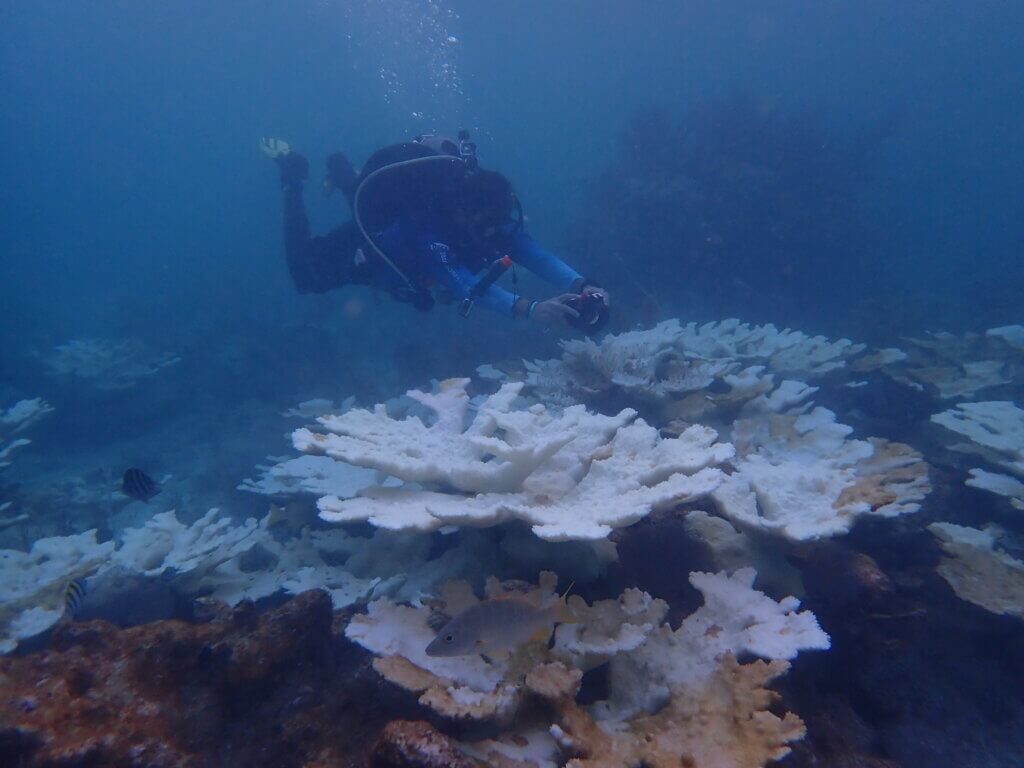
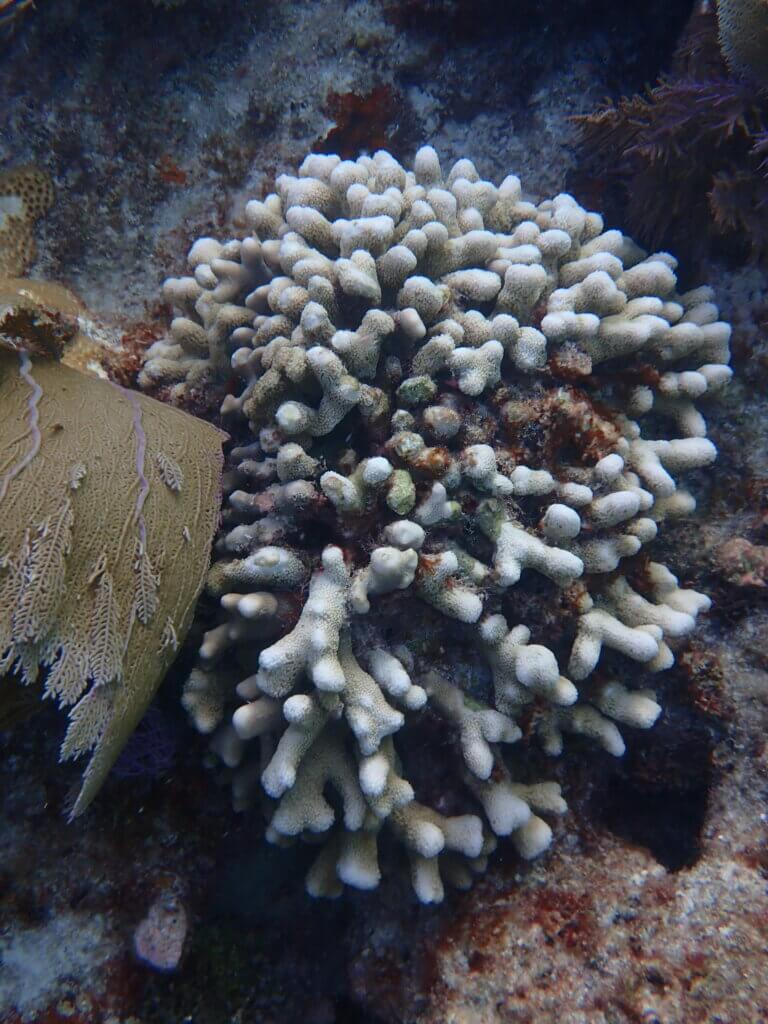
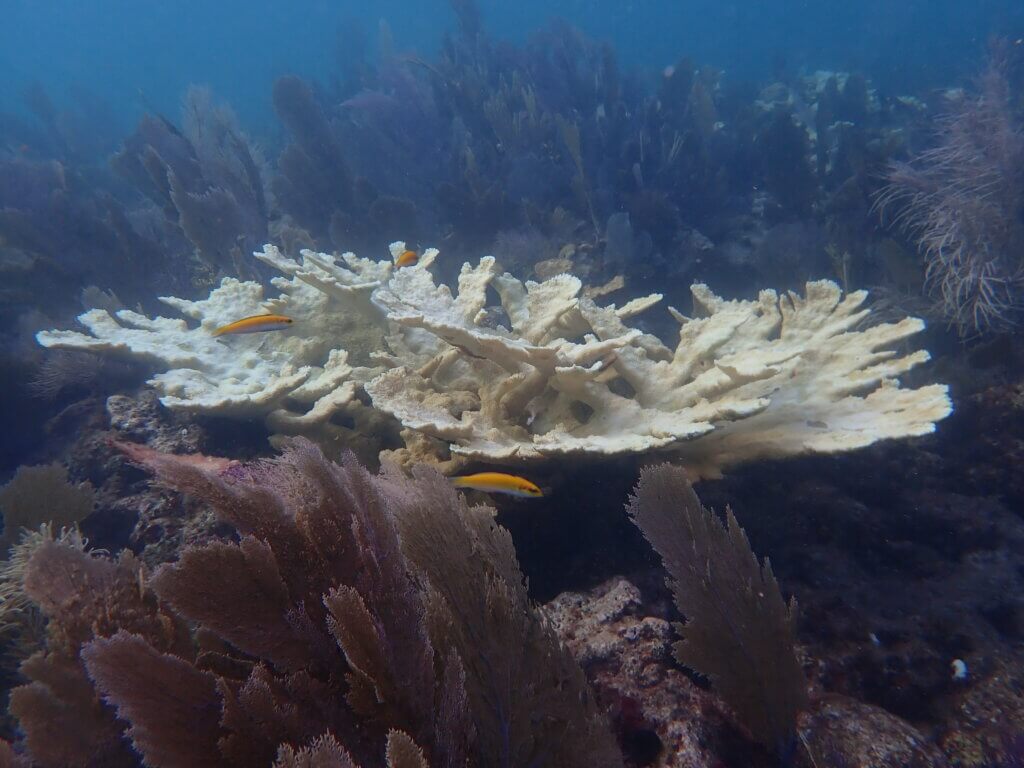
Limited bleaching is expected, usually in August when the water temperature briefly gets above 88 degrees Fahrenheit or following a major storm. This year, the higher temperatures in the shallow reefs, around 93 to 94 degrees, began in late June. “We’re in the middle of this bleaching event,” she said.
Moving the coral is anticipatory, she said: The coral the team is harvesting still looked quite healthy at the beginning of August.
Lesneski, who holds a doctorate from Boston University, knew this year could bring problems for Florida’s reefs.
Back in February and March, temperatures in the North Atlantic were unusually high, she said. “In March, word started to get out there might be a marine heat wave.”
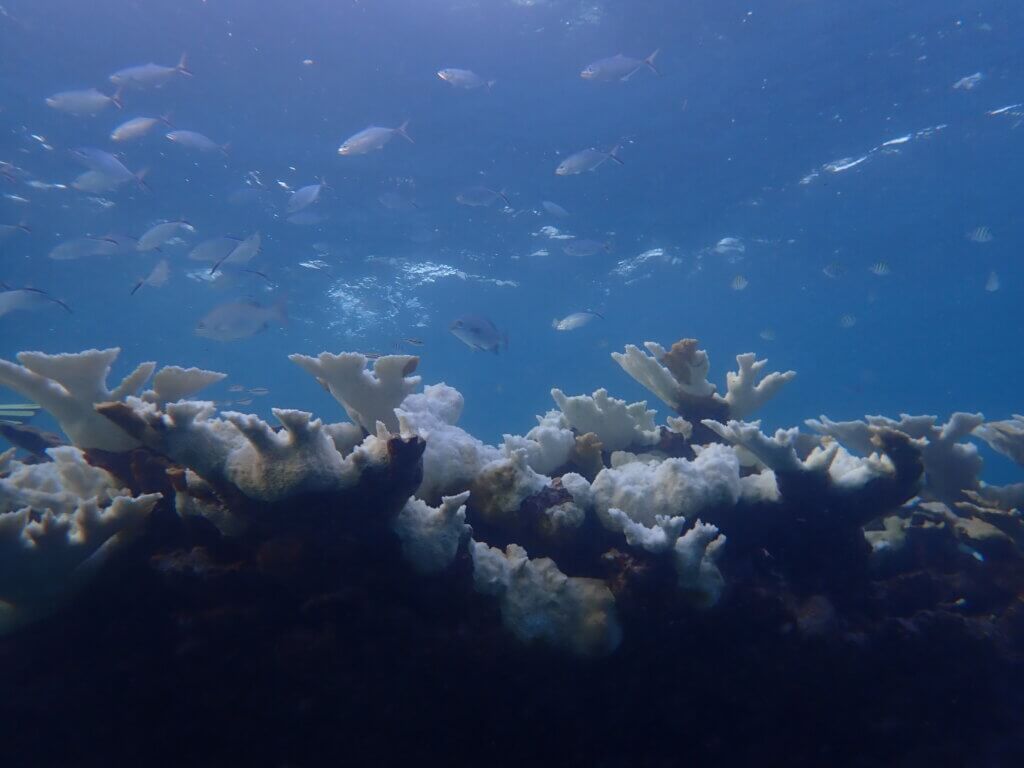
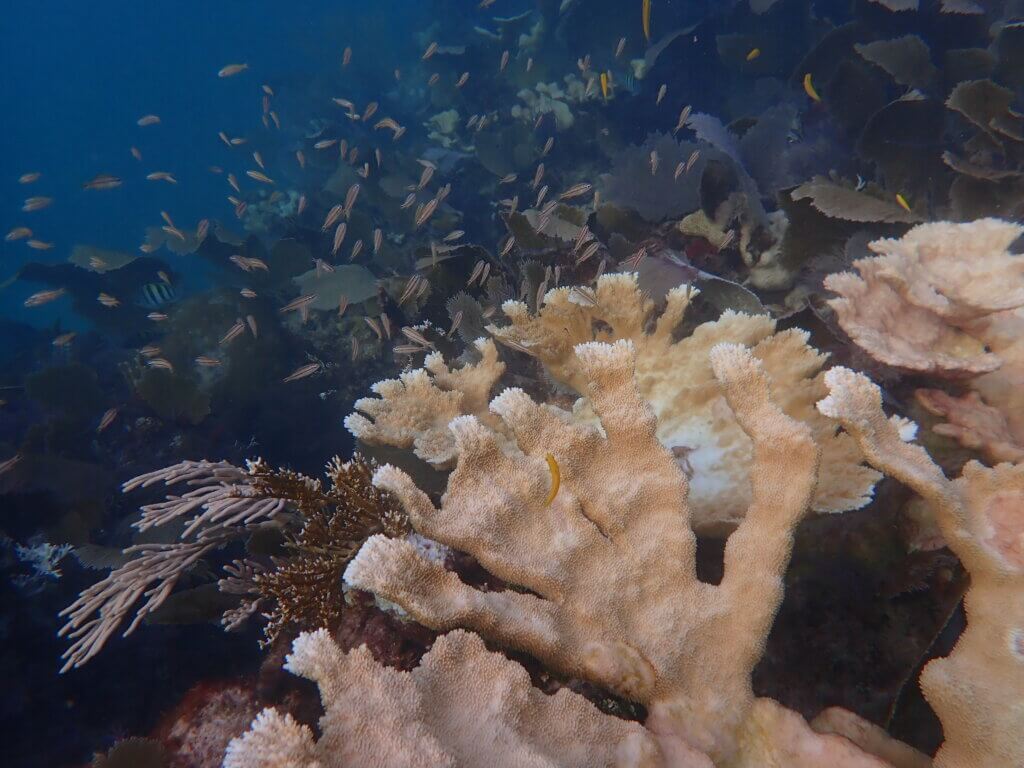
NASA attributes the increase in ocean temperatures squarely to climate change. “Ninety percent of global warming is occurring in the ocean,” its website reads, and the energy is stored in the top 700 meters.
Other groups started moving bits of coral to onshore tanks. The Orlando facilities have run out of space, Lesneski said.
Deeper areas show less bleaching and the corals being moved were still quite healthy, she said. “We’re being realistic about how this event is progressing. [The] work helps at least some corals make it through to the other side of this.”
Diving in such warm water presents other challenges. For most, it is just too hot to put a wetsuit on. “It doesn’t even feel refreshing at this point,” she said.
The coral could face more challenges, Lesneski said.
If damaged by a big storm, they may be too stressed to make it through. Deeper coral is usually more protected. A small tropical storm that just kisses the coast could help, though — she said such a storm would cool the water.
The reefs play an important part in the planet’s life.
Around 25% of ocean species rely on coral reefs at some point in their lifespan, Lesneski said. The reefs are also an important part of Florida’s economy, drawing tourists to the state.


